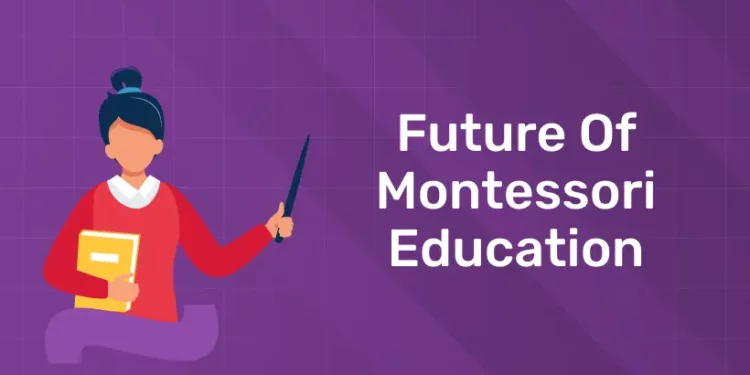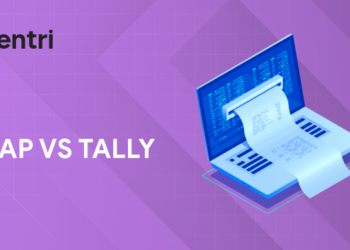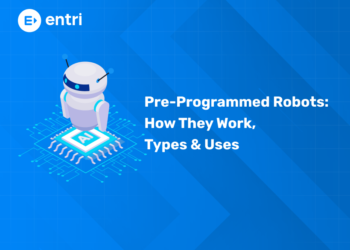Table of Contents
It’s obvious that technology will continue to be important to Montessori education as we move to the future. Technological developments will improve education while creating new avenues for individualized and interactive learning. Nonetheless, the fundamental ideas of the Montessori approach must serve as a guide for this progression. To facilitate child-centered learning and self-paced progress, technology is being incorporated into Montessori education. Adaptive learning systems and virtual reality have the potential to improve courses. Though intentional techniques and professional development are necessary, educators must strike a balance between the advantages of technology and the traditional Montessori principles.
Start your journey to becoming a certified Montessori teacher! Get free Demo Here!
How Will Technological Advancements Shape Montessori Education?
The child-centered, hands-on learning-focused Montessori education is well known for, and it is continually evolving and adapting to the ever-changing educational environment. Looking ahead, a number of significant patterns and advancements are influencing how Montessori education develops:
Integration of Technology
Although the hands-on, physical learning that has long been the focus of Montessori education is being replaced by more and more technology integration. By offering dynamic and captivating learning opportunities, digital tools and resources can enhance Montessori teaching approaches. In order to provide a wider range of learning possibilities while upholding the fundamental concepts of independence and self-directed learning, virtual manipulatives, educational apps, and online collaborative platforms can supplement the conventional Montessori materials.
Teacher Training and Professional Development
The need for qualified teachers is growing along with the demand for Montessori education. It is anticipated that future advancements in Montessori education would encompass improved programs for teacher preparation and continuous chances for professional growth. The main goal of these programs is to provide educators with the abilities and information required to successfully apply Montessori principles in a variety of contemporary classroom settings.
Expansion of Montessori High Schools
The preschool and primary grades have historically seen the greatest popularity of Montessori education. Encouragingly, though, more people are pushing for middle and high school education to incorporate Montessori concepts. This growth stems from the realization that all educational levels benefit from the way the Montessori method develops creativity, critical thinking, and lifelong learning abilities. With a curriculum that still prioritize student choice, real-world experiences, and collaborative learning, Montessori high schools are starting to make their mark.
Research and Evidence-Based Practice
To ensure that Montessori education continues to grow, more study must be done on its efficacy. Montessori methods will be validated and promoted with the aid of studies that show their benefits, including enhanced academic achievement, social skills, and emotional development. To guarantee that Montessori education is current and beneficial, curriculum designers, educators, and policy makers will be guided by evidence-based approaches.
Global Adoption and Adaptation
Throughout the world, Montessori education is being embraced and modified more and more. Montessori concepts will continue to be applied globally in the future, with modifications made to suit many cultural circumstances and educational frameworks. This worldwide reach will encourage the development of a varied community among Montessori teachers and students, allowing for the sharing of ideas and best practices among various geographical areas.
Inclusivity and Diversity
These two areas will receive more attention in Montessori education going forward. Efforts are underway to guarantee that children from a variety of backgrounds—including differing socioeconomic situations, cultural backgrounds, and learning styles—can attend Montessori schools. All children should be able to take advantage of Montessori education’s distinctive teaching method by creating an inclusive environment.
Environmental Education and Sustainability
The increased emphasis on sustainability and the Montessori method of teaching respect for the environment go hand in hand. More environmental education, educating pupils about sustainability, conservation, and the value of protecting the environment, is probably in store for Montessori curricula in the future. Activities centered in nature and outdoor learning environments will be important components of this facet of Montessori education.
Unlock your passion for education and shape young minds as a Montessori teacher!
Trends And Innovations In Montessori Practices
1: What is the primary focus of the first plane of development in the Montessori method?
The classic child-centered, hands-on method of Montessori education is being improved by new developments and trends. While an emphasis on outdoor and nature-based activities enhances physical health and environmental awareness, integrating technology into STEAM education increases learning experiences. All children are guaranteed accessibility through efforts towards diversity and cultural relevance, and an emphasis on social-emotional learning promotes holistic development. More parent and community involvement expands learning outside of the classroom, while improved teacher preparation and evidence-based approaches raise the standard of education. The effect and applicability of Montessori education in the modern world are further increased by sustainability initiatives and public Montessori programs.
Get Certified & Start Your Montessori Career
Montessori Teacher Training Course by Entri App: Gain expert skills, earn certification, and kickstart your teaching career.
Join Now!Entri’s Montessori Teacher Training Course
Being certified by the appropriate organization can make all the difference in pursuing a happy career as a Montessori teacher. With the goal of giving its students the tools they need to be successful in the field of Montessori education, Entri App offers the best Montessori Teacher Training Course. The curriculum is well-structured. Details about fees can be obtained by contacting Entri App.
CONCLUSION
With room for expansion and customization in many domains, the future of Montessori education appears bright. Through the integration of technology, expansion into higher education, promotion of inclusivity, improvement of teacher preparation, funding of research, global outreach, and integration of sustainability education, Montessori education can maintain its ability to offer students worldwide a comprehensive and successful educational experience.
Get Certified & Start Your Montessori Career
Montessori Teacher Training Course by Entri App: Gain expert skills, earn certification, and kickstart your teaching career.
Join Now!Frequently Asked Questions
Will Montessori education expand to higher grade levels beyond preschool and elementary?
The idea of extending Montessori education throughout middle and high school is becoming more and more popular. The new wave of Montessori high schools offers curricula that still place a strong emphasis on student choice, self-directed learning, and applying knowledge to real-world situations.
How is Montessori education adapting to meet 21st-century skills demands?
Social-emotional learning (SEL) is a major component of Montessori education, and it fosters abilities like empathy, teamwork, and self-control. This all-encompassing strategy helps kids become emotionally intelligent and strong interpersonal abilities.
How are parents and communities involved in Montessori education?
Montessori schools actively engage parents and communities through education programs, collaborative projects, and community events. This involvement strengthens the partnership between home and school, supporting children’s holistic development.
How is Montessori education adapting to meet 21st-century skills demands?
By incorporating STEAM (Science, Technology, Engineering, Arts, and Mathematics) education, critical thinking, creativity, and problem-solving techniques into its curricula, Montessori education is evolving. Students are better prepared for the opportunities and difficulties of the modern world with these talents.











